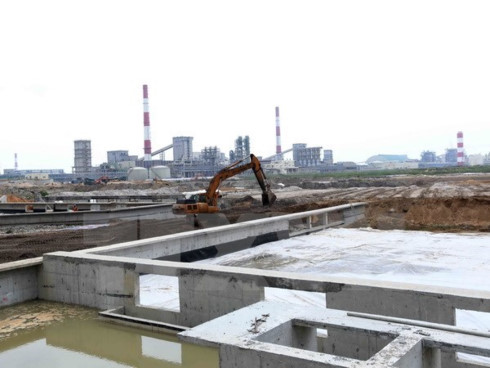Formosa steel plant: dust explosion triggered by fabric filter breakage
The explosion of the lime kiln dust filter equipment in Formosa Ha Tinh Steel Plant (FHS) located in the central province of Ha Tinh came from the breakage of a dust fabric filter, according to the provincial People’s Committee.
 |
The committee said in a press release on May 31 that the mixture of limestone dust and steam from the process of lime burning produced a dust cake in the fabric filter.
The dust cake then resulted in a pressure drop, leading to the breakage of the fabric filter, the committee cited investigation results announced by FHS technicians, environmentalists from the Ministry of Natural Resources and Environment and competent local agencies.
The committee said the explosion caused no casualties as well as environmental harm.
Property losses are small, it added, noting that the incident has not affected the trial runs of the lime kiln, which began on May 29, and of a steel furnace slated for June 1.
During his fact-finding trip to the plant, Secretary of the provincial Party Committee Le Dinh Son asked FHS to provide objective, scientific and accurate information on the cause of the explosion for competent agencies and the public within one week.
FHS pledged that the company will replace the broken fabric filter with the best one while examining all other facilities to ensure the absolute safety for the test runs.
Right after hearing the explosion, which happened at 20:45 on May 30, officials of the provincial People’s Committee, the Ministry of Natural Resources and Environment and relevant agencies came to the plant to clarify the incident.
In April last year, waste water discharged from the Taiwan-based steel company polluted more than 200 kilometres of coastline, devastating the marine environment and local economies of central Ha Tinh, Quang Binh, Quang Tri and Thua Thien-Hue provinces which have largely relied on fishing and tourism.
Four months later, the company owned up to its mistake, offering a public apology and pledging US$500 million as compensation for affected fishermen, households and organisations.

